- Size
- Smallest
- Small
- Small to Medium
- Medium
- Large
- Giant
- Characteristics
- Smartest
- Hypoallergenic
- Fluffy
- Best Guard
- Best Family
- Best for Kids
- Low Shedding
- Healthiest
- Police Dogs
- Most Calm
- Quietest
- Color
- White
- Black
- Grey
- Brown
- Blue
- Red
- Coat
- Hairless
- Short
- Long
- Origin
- Japan
- China
- Australia
- Germany
- Italy
- United States
- France
- Group
- Hound
- Terrier
- Herding
- Toy
- Working
- Sporting
5 Reasons Behind Excessive Dog Paw Licking
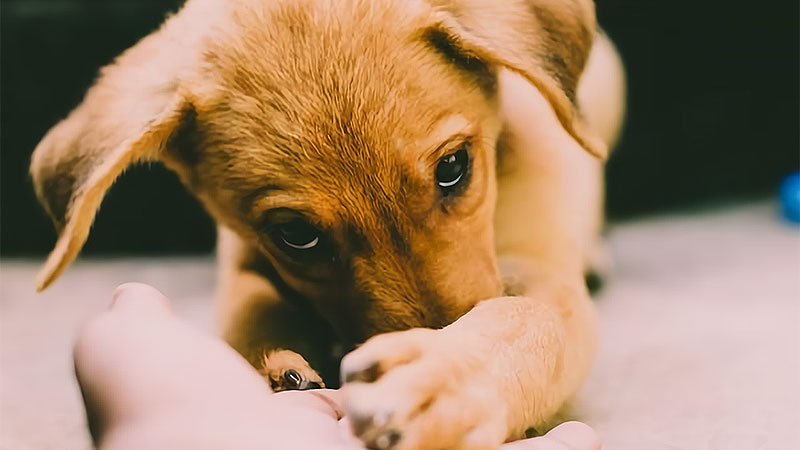
Dog owners often find themselves observing peculiar behaviors in their furry companions, and one common occurrence that raises questions is the incessant paw licking. While the sight of a dog diligently licking its paws might seem harmless or even endearing, it's essential for pet owners to understand the potential reasons behind this behavior.
In this article, we will explore the various factors that may contribute to dogs licking their paws and what pet owners can do to address and prevent any underlying issues.
Natural Grooming Instinct
Dogs are natural groomers, and licking is an integral part of their grooming routine. In the wild, wolves and other canines often lick their paws to clean them after a meal, remove debris, or maintain overall hygiene. Domestic dogs have retained this instinct, and licking their paws is a way for them to keep themselves clean.
However, excessive paw licking that goes beyond normal grooming may be indicative of an underlying problem that requires attention.
Here are 5 reasons why you should care:
1. Allergies and Skin Irritation
One of the primary reasons why dogs lick their paws excessively is allergies or skin irritation. Dogs can be allergic to various environmental factors, including pollen, grass, mold, or certain types of food. When they come into contact with allergens, their skin may become irritated, leading to discomfort and the instinct to soothe the irritation through licking.
Food allergies, in particular, can manifest in skin-related symptoms, and dogs may lick their paws as a response to the discomfort caused by the allergens in their diet. If you notice your dog's paw licking coincides with a change in diet, it might be worth exploring potential food allergies with your veterinarian.
2. Parasites and Infections
Parasites and infections, such as fleas, ticks, or fungal infections, can cause significant discomfort for dogs, leading them to lick their paws excessively. Parasites can cause itching and irritation, prompting dogs to focus on licking the affected areas in an attempt to alleviate the discomfort.
Infections, whether bacterial or fungal, can also lead to paw licking. Moist conditions between the toes provide an ideal environment for the growth of microorganisms, exacerbating the need for constant licking.
Regular inspection of your dog's paws and fur, especially after outdoor activities, can help you identify potential signs of parasites or infections early on.
3. Dry or Cracked Pads
Just like humans, dogs can experience dry or cracked skin, particularly on the paw pads. Harsh weather conditions, such as extreme heat or cold, can contribute to the drying of paw pads. Additionally, exposure to rough surfaces or chemicals can lead to irritation and discomfort.
When dogs experience dry or cracked pads, they may lick their paws as a way to moisturize and soothe the affected areas. Providing paw balms or moisturizers specifically designed for dogs can help alleviate this issue.
4. Anxiety and Stress
Dogs, like humans, can experience anxiety and stress, and they may exhibit various behaviors as a response. Excessive paw licking can be a manifestation of stress or anxiety in dogs. Changes in the household, new additions to the family, loud noises, or being left alone for extended periods can trigger stress in dogs, leading to compulsive behaviors like excessive licking.
Understanding your dog's behavior and addressing any sources of stress can help alleviate excessive paw licking due to anxiety.
5. Pain and Discomfort
Underlying pain or discomfort, whether related to arthritis, injuries, or other medical conditions, can drive dogs to focus on licking their paws. Dogs may lick as a way to self-soothe and alleviate the pain they are experiencing.
If your dog's paw licking is persistent and accompanied by other signs of discomfort, such as limping or changes in behavior, it's crucial to consult with a veterinarian to rule out any potential health issues.
Conclusion
While occasional paw licking is a natural behavior for dogs, persistent and excessive licking should be a cause for concern for pet owners. Understanding the potential reasons behind this behavior, such as allergies, skin irritation, parasites, anxiety, or pain, is the first step in addressing the issue.
Regular grooming, maintaining a clean environment, and being attentive to changes in your dog's behavior can help prevent and identify the root causes of excessive paw licking. If in doubt, consulting with a veterinarian is always recommended to ensure your furry friend's health and well-being. Remember, a happy and healthy dog is one whose behaviors are understood and addressed with care.
You May Also Like
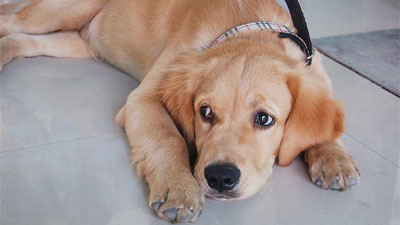 Help & AdviceThe 4 Reasons Behind Dogs Avoiding Eye Contact
Help & AdviceThe 4 Reasons Behind Dogs Avoiding Eye Contact Help & Advice7 Reasons Why Dogs Always Keep Their Mouths Closed
Help & Advice7 Reasons Why Dogs Always Keep Their Mouths Closed Help & AdviceThe 4 Reasons Behind Dogs Avoiding Eye Contact
Help & AdviceThe 4 Reasons Behind Dogs Avoiding Eye Contact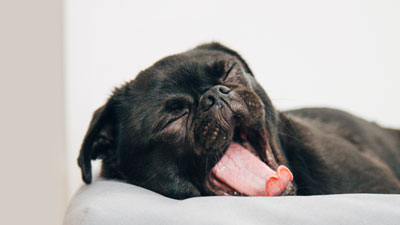 Dog BehaviorWhy Do Dogs Yawn? and The Meaning Behind
Dog BehaviorWhy Do Dogs Yawn? and The Meaning Behind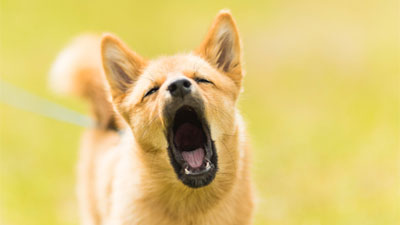 Dog BehaviorThe 6 Common Dog Sounds and Their Meanings
Dog BehaviorThe 6 Common Dog Sounds and Their Meanings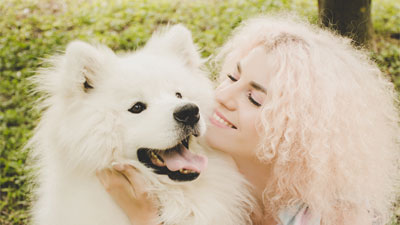 Dog Training Tips5 Easy Steps: How to Teach a Dog to Smile
Dog Training Tips5 Easy Steps: How to Teach a Dog to Smile